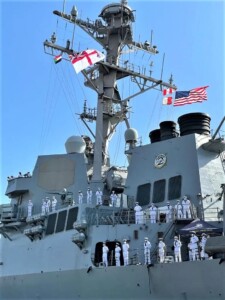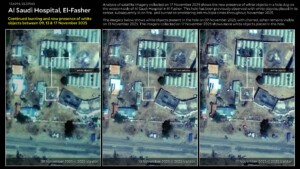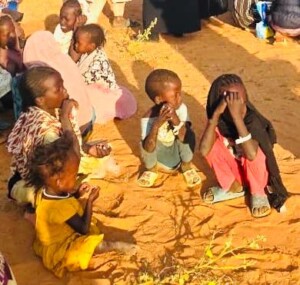Nuba Reports: ‘Rebel rift in Sudan’s Blue Nile affects population’
The leadership dispute within the Sudan People’s Liberation Movement-North has affected the various tribes of Blue Nile state, as the rebel factions fall for a large extent along ethnic lines, Nuba Reports stated in a new briefing on Monday.
The SPLM-N leadership rift began in late March after the then Deputy Chairman Abdelaziz El Hilu submitted his resignation. He accused Chairman Malik Agar and Secretary-General Yasir Arman of controlling the rebel movement arbitrarily, and not representing the movement in the AU-brokered peace talks, in particular concerning the issue of self-determination of the Nuba Mountains.
The leadership dispute within the Sudan People’s Liberation Movement-North has affected the various tribes of Blue Nile state, as the rebel factions fall for a large extent along ethnic lines, Nuba Reports stated in a new briefing on Monday.
The SPLM-N leadership rift began in late March after the then Deputy Chairman Abdelaziz El Hilu submitted his resignation.
He accused Chairman Malik Agar and Secretary-General Yasir Arman of controlling the rebel movement arbitrarily, and not representing the movement in the AU-brokered peace talks, in particular concerning the issue of self-determination of the Nuba Mountains.
The SPLM-N’s regional political groups, the Nuba Mountains Liberation Council and the Blue Nile Liberation Council, then appointed El Hilu as SPLM-N chairman, relieving Agar and Arman from their positions. In Blue Nile state, however, there are various SPLM-N factions supporting the former leadership.
Fighting
Nuba Reports notes that internal fighting between SPLM-N factions in Blue Nile state subsided to some extent in July compared to previous months. The latest cases of violence in Blue Nile state however appear to be less driven by the dispute over the SPLM-N leadership but more because the rebel factions are increasingly working autonomously.
Both Agar and El Hilu have largely advocated for peace and reconciliation. On 14 June, Agar called on the SPLM-N in Blue Nile state for an end to the violence, and tasked a committee to investigate the perpetrators of the violence and provide assistance for the victims of these incidents. On 23 July, El Hilu invited Agar to attend and lobby for a leadership role during the SPLM-N General Assembly.
Others, however, appear to be intent on dividing the rebel movement, the briefing reads. A statement by Gen. Ahmed El Omda on 23 July accused the SPLM-N in the Nuba Mountains of “taking advantage” of the rebel movement in Blue Nile and called on SPLM-N members in Blue Nile to reject the newly appointed leadership.
Ethnic divisions
The fractures within the SPLM-N movement in Blue Nile state continue to fall along ethnic lines. Commanders and political leaders loyal to Agar and the former leadership predominantly emanate from the Angassana tribe, while other supporters of rival commanders belong to other ethnic groups, including the Uduk people.
Some of those in Blue Nile State who support the new leadership under El Hilu stem from perceived ethnic favouritism within the SPLM-N structure under Agar, Nuba Reports says.
In May, fierce clashes broke out between between supporters and opponents of Agar in the Gendrasa refugee camp in South Sudan’s Maban county. The politically charged ethnic divisions among the Blue Nile refugees in Maban have induced them to relocate to the other three refugee camps in Maban.
The Angassana have left Doro camp for instance, and relocated to Yusuf Batil, Kaya, and Gendrasa camps in Maban, where their tribe represents the majority.
Insecurity, rainy season
According to Nuba Reports, the ongoing SPLM-N dispute and decreased rainfall since last month will likely reduce agricultural activities.
The South Kordofan-Blue Nile Coordination Unit, an organisation that monitors food insecurity and displacement in the Two Areas, reported that market prices have increased between 33 and 167 percent since the violence erupted in May.











 and then
and then